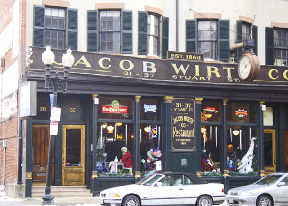It is a dilemma these days what to do with a property. Can you renovate or restore. Or is it enough to hold on and wait for the economy to improve? I am old enough to remember the REIT crash in 1974, the commercial crash of 1989, the tech bubble of 1999 and now the Great Recession of 2008. The fact is that these real estate contractions are just another cycle in the life of a building. How to handle the cycle depends a lot on your building.
The historical preservation groups like to say there is no such thing as a bad building, just bad owners and tenants. This is usually said in the context of creating condos from an urban single family, a demolition of a public space (theater) or the onslaught of adult uses. It is actually a fallacy that there are no bad buildings. Think of your real estate as the child in school that picks on your child for not being attractive or stylish. That child may be attractive but is lacking on the inside. Buildings can be attractive and not have the structure to be adapted for reuse. The staircases of most buildings built before 1910 cannot meet code compliance today. Redoing the staircase usually results in the modification of a bearing wall. Modifying the bearing wall will ultimately affect the structure as a whole. At this point your engineers' and architect costs start to equal what you had in mind for a budget for whole project.
You must also consider if you spend more than a third of the property value in renovations (when was that last appraisal) there will be ADA compliance to consider. If ADA becomes an issue, whatever thought you had for a budget will need to be revisited. ADA ramps can be the slippery slope to financial ruin if you are not prepared for the expense and the design limitations that it will place on the rest of the project that you thought you were doing.
I do not wish to sound alarmist or say that renovations should not be considered in this economy. It is precisely because of an economy like this that the Wang Buildings in Lowell were redeveloped. Millennium Partners began the Ritz in this environment and brought about the revival of a significant part of downtown Boston. If you do not remember, there is a photo exhibit at a South End gallery of the Combat Zone then and now.
If your property is adaptable for reuse and you cannot find a tenant, wait. This too will change. If it is not suitable for renovation given the bones of the building, consider selling. Even if you can do no more than clear your debt, your time focused on better and more profitable ventures is what matters now. Do not waste time and effort on trying to save equity that is already lost. Most of us have perceptions of value that do not reflect the buyer's perceptions. Every seller has an asset that cannot be replaced. Every buyer is saving you from bankruptcy with their acquisition of a property that has lost all of its inherent strength without a vibrant economy.
Financing today will govern what can and cannot be done in most cases. Financial institutions, no matter what size you or your project may be, will be conservative in lending. This may make your property a non starter. It also means that if you find your needs and goals attainable you will have a successful project.
Boston's population is growing; urban retailing is changing and growing with the population. Malls hurt the urban centers, big box stores hurt the malls, and urban revitalization hurt the big box stores.... As I said earlier 1974, 1989, 1999, 2008, merely cycles. Technology is making the cycles shorter, but we have been here before, and so has your restoration project, before it was the project of someone else.
Kevin Fitzgerald is president of Fitz Inn Auto Parks and Jacob Wirth Restaurant, Boston.
Tags:
Renovate, restore, hold on to, sell...? How to handle these challenges depends on your building
February 17, 2010 - Construction Design & Engineering
 (1).jpg)









.png)